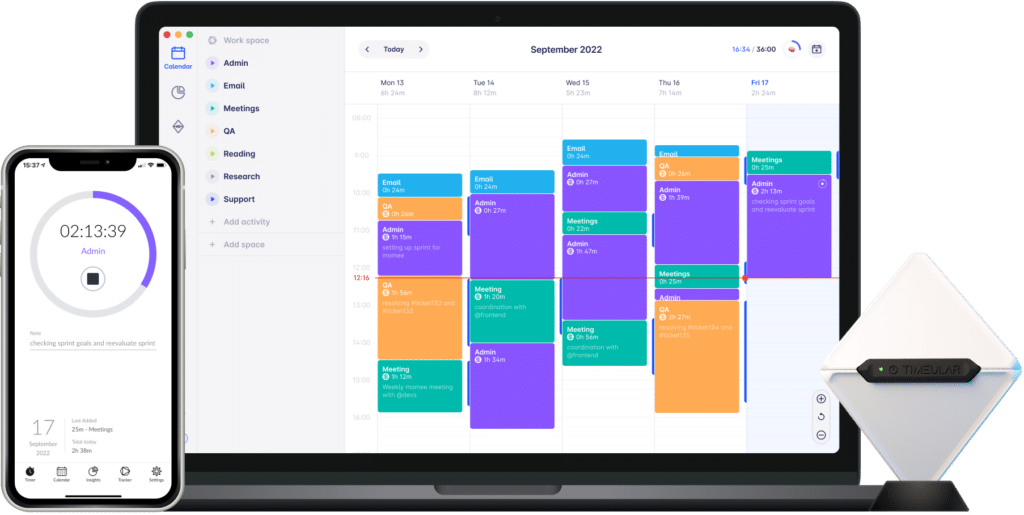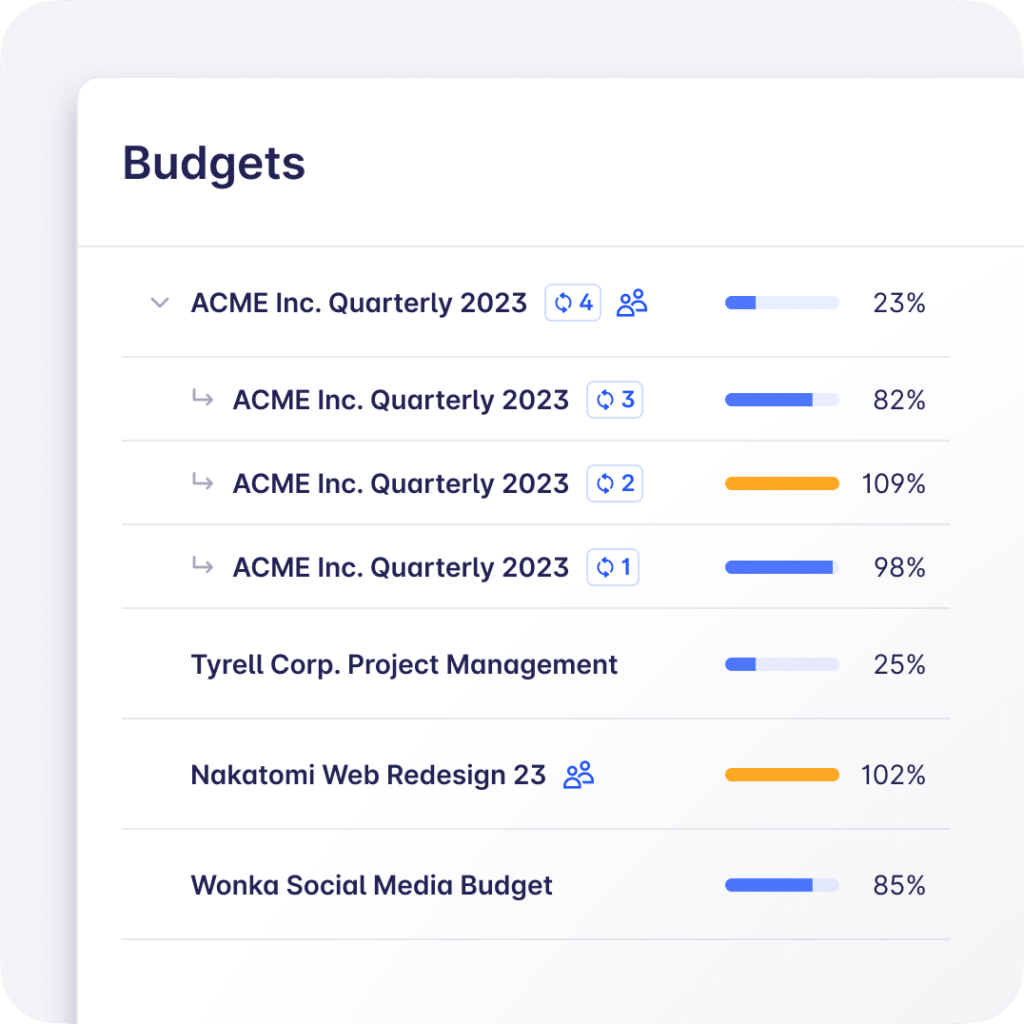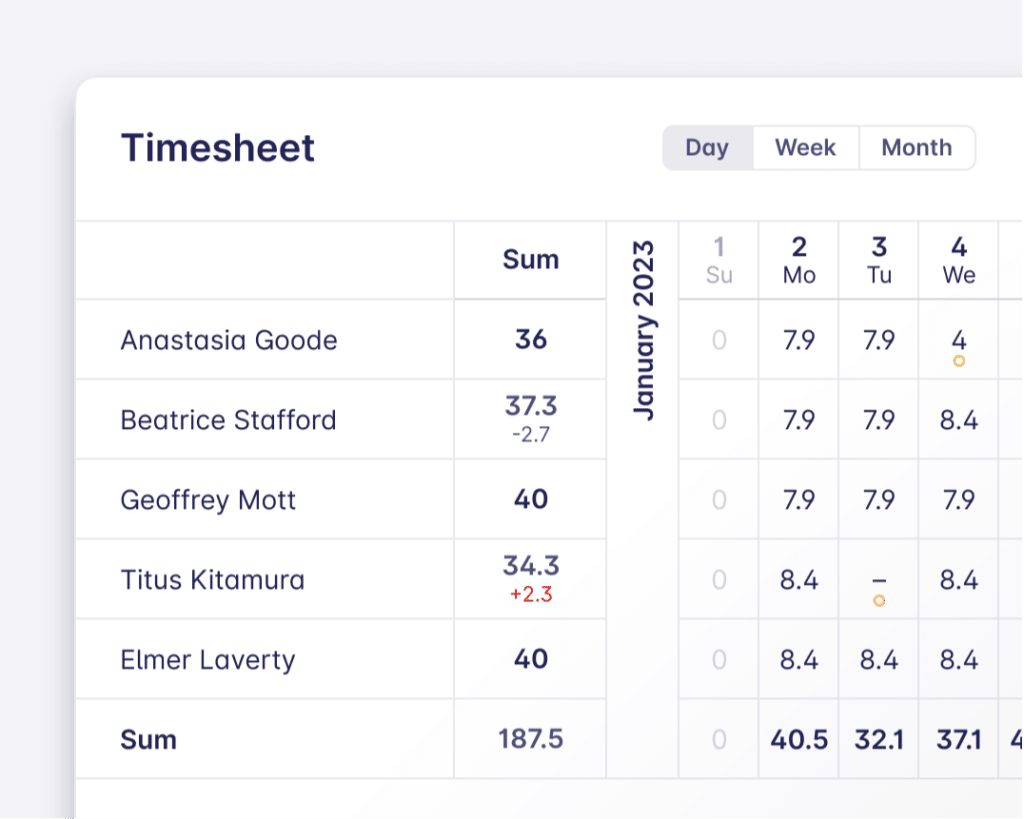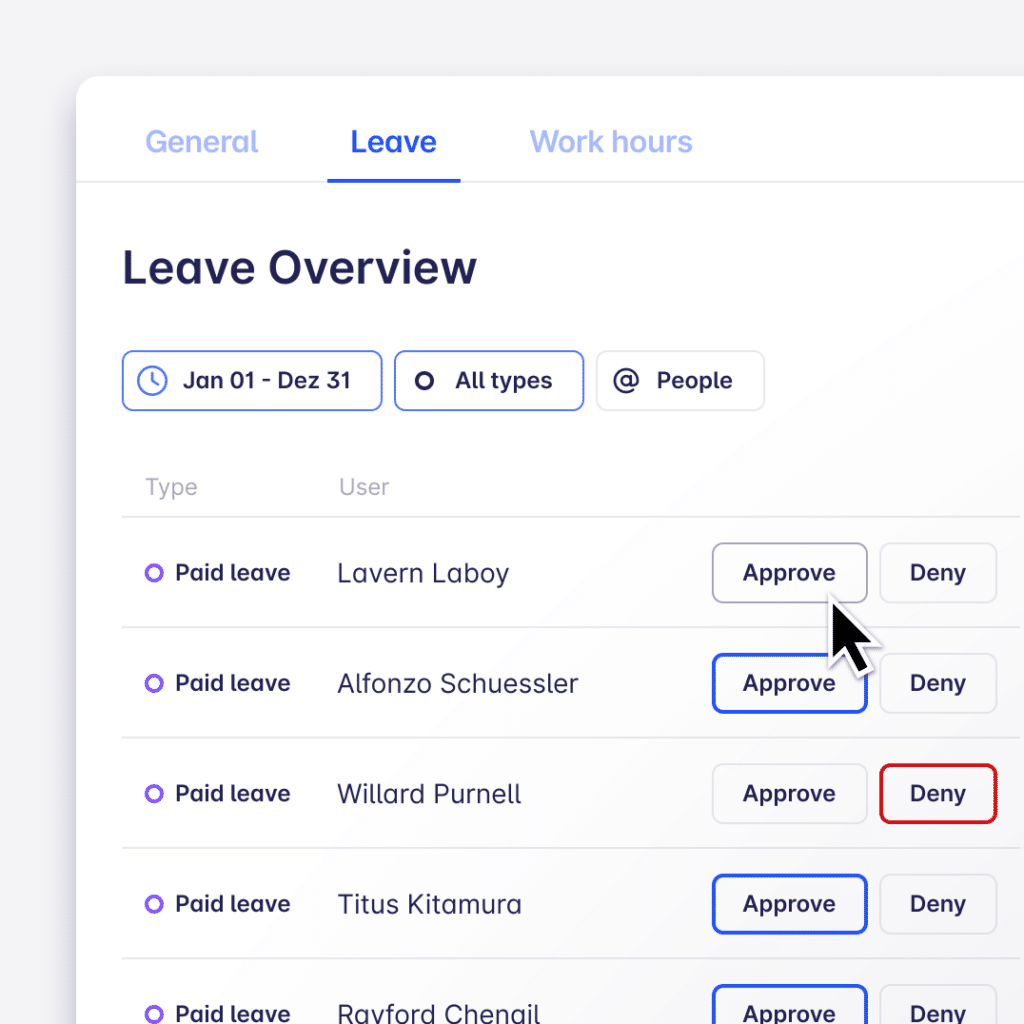Time Tracking in Jira: The Best Integration To Boost Profitability
Jira is a project management tool for task tracking, project planning, and team collaboration. It’s a favorite project management software of web development teams.
While Jira shines in many respects, its native time tracking features may not fully satisfy user requirements. Fortunately, Timeular and its time tracking integration with Jira fills this gap perfectly.
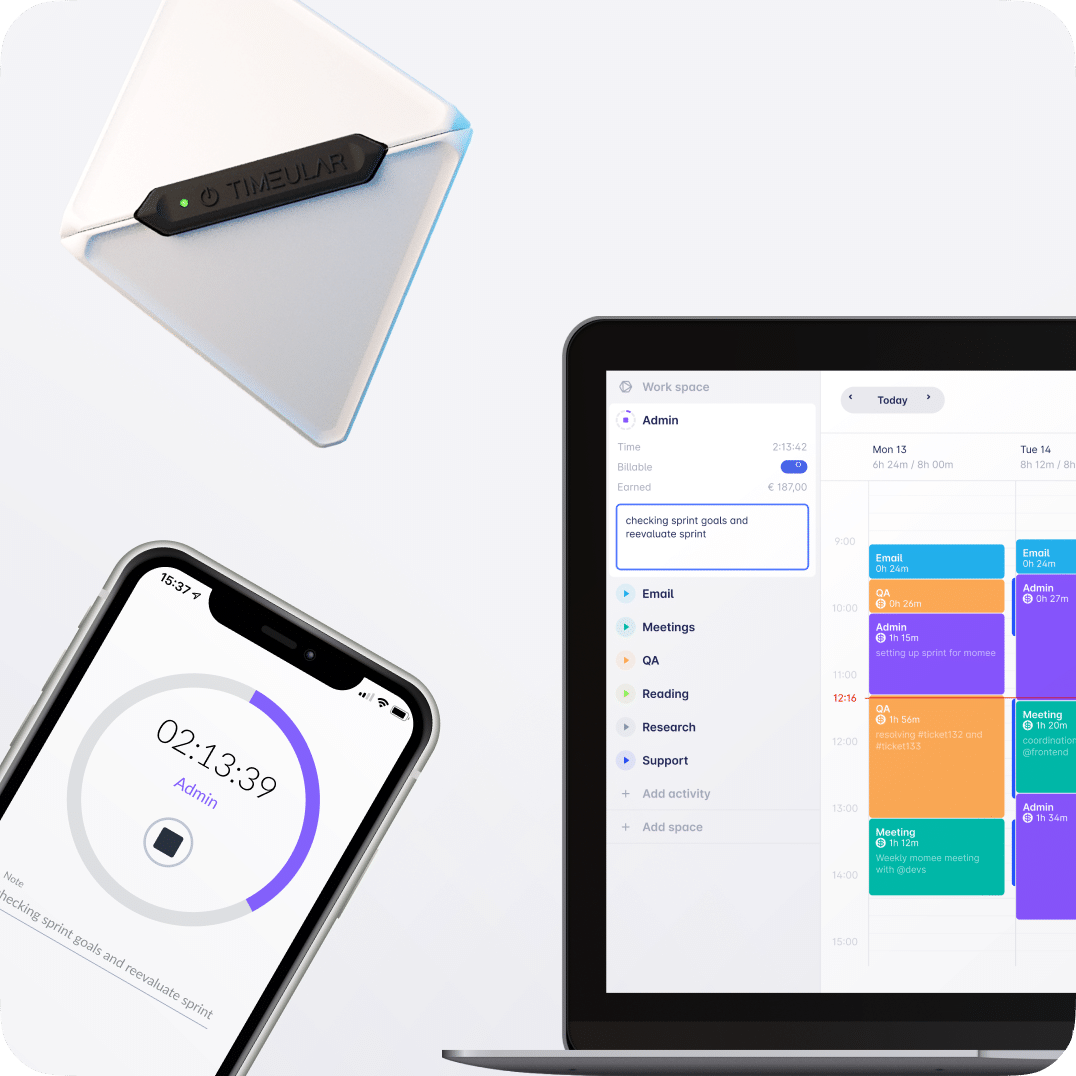
Looking for the smoothest timer tracker for Jira?
You’ve just found it!
In this article, we’ll explore the benefits of tracking time in Jira and show you how to track time with the native Jira time tracking feature.
As an alternative to the in-built Jira time tracking, we will present you with a much more effortless approach that Timeular has to time tracking and time management. Based on that, you can make an informed decision on how to track the time of your tasks in Jira in the most efficient way. Let’s start!
Why do you need to track time with Jira?
Time tracking within a project management tool like Jira is essential for a project’s success, as it serves multiple critical purposes.
- It starts with providing project managers a clear picture of time spent on different tasks throughout a project’s lifecycle. This insight helps project managers monitor task progress and ensure that projects follow their planned schedule.
- Project management time tracking optimizes team productivity, prevents burnout, and enhances overall project success. It also helps to ensure that team members are assigned tasks in a way that optimizes their productivity, prevents overworking, and contributes to the project’s overall success.
- Last but not least, time tracking has a direct impact on revenue. Utilizing time tracking refines project budgeting, tightens cost control, and guarantees the accuracy of project billing and invoicing.
Does Jira include a time-tracking feature?
Yes, Jira offers its own time-tracking capability. But for those seeking a more nuanced or specialized approach, third-party tools like Timeular often become the go-to to elevate their time-tracking in Jira.
Simply put, while Jira’s inherent time tracking serves its purpose, a dedicated app like Timeular provides a much more intuitive and seamless experience.
How to track time in Jira
To natively track time in Jira, follow these steps:
- Ensure users have the ‘Work on Issues’ permission enabled.
- Navigate to ‘Issues’.
- Click on ‘Permission’ schemes.
- Locate the time tracking permissions section and select ‘Work on Issues’, then edit the field.
- Choose the users, groups, or project roles that need to log work on issues and click ‘Grant’.”
It should be noted that exact navigation and settings might vary depending on the version of Jira and any custom configurations your instance might have. Always refer to the official Jira documentation or support for the most accurate and up-to-date information.
The limitations of Jira’s time-tracking
Jira’s time tracking feature has several limitations:
- Limited reporting options: The time tracker in Jira provides only a narrow range of reporting options, which can hinder effective analysis and comprehension of time data.
- Complexity for beginners: New users often find the native Jira time tracker overwhelming. The time management capabilities could be made more user-friendly, especially for those primarily focused on time tracking.
- Manual operation: Users must manually start and stop the timer, which is time-consuming and increases the likelihood of errors.
- Lack of advanced features: While Jira’s native time tracking offers basic functionality, it may not meet more advanced requirements, such as advanced reporting, customizable tracking rules, or in-depth analytics.
Timeular: The best Jira time-tracking integration
Timeular is a powerful yet user-friendly time-tracking software trusted by over 50,000 users and numerous teams globally. It serves as the ultimate project time tracker, offering a host of advantages tailored to efficient project management:
Physical Tracker for easy time tracking
With Timeular’s physical time tracking cube on your desk, you can effortlessly track over 1000 activities. There is no need to navigate to your time tracking or project management tool to start or stop tracking manually – simply flip the cube, cultivating a seamless time tracking habit.
- Note: The physical Tracker is optional. It was designed to simplify the time-tracking process and infuse some enjoyment into it.
Multiple tracking methods
Timeular provides flexibility in time tracking. You can choose the method that best suits your work style, whether it’s flipping the physical Tracker, using keyboard shortcuts, or utilizing automatic time tracking.
These methods ensure a smooth and speedy tracking experience, significantly reducing the time spent on time tracking.
Project budget under control
Keep project budgets in check by setting the planned hours for each project and monitoring how the time budget is spent. Timeular will notify you when you approach certain limits, preventing overspending and ensuring accurate client billing.
Instant and complete reporting
Access versatile reporting features with various filters and views that offer actionable insights into productivity levels and project progress – no need for additional costs or higher-tier plans to access these valuable reports.
Automated billable and non-billable hours
Timeular also works as a billable hours app that allows users to label tasks as billable or non-billable. By adding hourly rates to tasks or team members, you will let the system automatically calculate project costs.
This simplifies project cost tracking and accurate billing, offering insights into team efficiency.
Tracking overtime
Timeular automatically records extra hours worked, reporting both overtime and deficit hours based on configured work schedules and requested leave. This feature ensures accurate accounting of time worked and overtime pay.
Leave management
Timeular serves as a leave tracking system, helping you manage various types of absence leaves to plan projects and workloads effectively.
This integration streamlines the time-tracking process and ensures accurate time allocation, offering an enhanced time-tracking experience within the Jira platform.
How to track time in Jira with Timeular
Timeular integrates seamlessly with Jira. In Timeular, Jira projects are imported as “activities” and issues as “@mentions”.
To track time in Jira with Timeular, follow these simple steps:
- Create a free Timeular account.
- Set up the JIRA integration in your Timeular profile. Go to Settings > Integrations.
- If you using a physical Tracker, assign the activities to a side of the cube.
- Track your time for the project.
- The time tracked can be assigned to a specific issue/work log by entering the @issue within the note section of the app.
For a more detailed description and configuration help for JIRA, please read this article.

Looking for the smoothest timer tracker for Jira?
Conclusion
Time tracking in Jira provides insights into task progress, aids in efficient resource allocation, contributes to financial management, and ensures accurate billing for clients. Time tracking is also key in identifying inefficiencies in productivity and contributes to project success.
However, because Jira’s native time tracking feature has its limitations such as reporting options and dashboard complexity, users are looking for alternatives to track time spent on daily tasks.
To address Jira limitations, use Timeular, which is the best Jira time-tracking integration. It enhances the time tracking experience within Jira, providing a more intuitive, efficient, and accurate way to track time and tasks in project management.
FAQ
How to reset time tracking in Jira?
In the Jira Cloud, navigate to the specific issue and access the “Work log” inside the “Activity” section. Here, you have the option to edit or remove tracked time. The most convenient approach to manage your time tracking in this context is by utilizing Timeular.
Is Jira time tracking mandatory?
No, time tracking is not mandatory in Jira.
You might be interested in:

